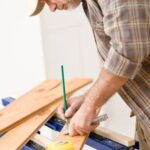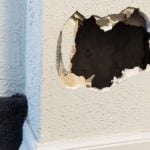In today’s world, where environmental sustainability is a growing concern, improving energy efficiency in our homes has become more important than ever. This article aims to provide valuable insights into the significance of energy efficiency and practical tips on how to achieve it within the UK. From assessing current energy usage to taking advantage of government incentives, this comprehensive guide will help homeowners make informed decisions to reduce their carbon footprint and save on energy costs.
Energy efficiency is not only beneficial for the environment but also for individual households. By understanding the importance of reducing energy consumption in the UK, homeowners can make informed choices that contribute to a cleaner, greener future. This article provides a step-by-step approach towards achieving energy efficiency in homes, focusing on practical solutions that are applicable and achievable for residents across the UK.
With rising energy costs and increasing awareness of climate change, now is the perfect time for homeowners in the UK to take action towards improving energy efficiency in their homes. From simple measures such as identifying air leaks and insulating homes to incorporating renewable energy sources, there are numerous ways to make a positive impact.
By following the guidelines outlined in this article, individuals can play their part in creating a more sustainable environment while also benefiting from long-term cost savings.
Assessing Current Energy Usage in Your Home
Conducting an Energy Audit
The first step to improving energy efficiency in your home in the UK is to conduct an energy audit. This will help you understand how much energy your home currently consumes and identify areas where improvements can be made. You can perform a DIY energy audit by using online tools and calculators, or you can hire a professional to conduct a comprehensive assessment of your home’s energy usage.
Monitoring Energy Consumption
Once you have completed an energy audit, it is important to monitor your energy consumption on a regular basis. This can be done by using smart meters and energy monitoring devices that provide real-time information about your electricity and gas usage. By keeping track of your energy consumption, you can pinpoint any sudden spikes or inefficiencies and take corrective measures accordingly.
Evaluating Energy Bills
Reviewing your energy bills over a period of time can also provide valuable insights into your home’s energy usage patterns. Look for trends in your energy bills, such as seasonal variations or increased consumption during specific times of the day. Understanding these patterns can help you make informed decisions about how to improve energy efficiency in your home UK, such as adjusting your thermostat settings or upgrading to more efficient appliances.
By thoroughly assessing your current energy usage, you will be better equipped to implement targeted improvements that will lead to significant cost savings and a reduced environmental impact.
Identifying and Sealing Air Leaks and Insulating Your Home
In order to improve energy efficiency in your home in the UK, it is essential to identify and seal air leaks while also ensuring proper insulation. This step is crucial in preventing heat loss and reducing energy consumption, ultimately leading to lower utility bills.
Identifying Air Leaks
The first step in this process is identifying air leaks in your home. Common areas where air leaks occur include windows, doors, electrical outlets, and around pipes. Inspecting these areas for drafts or feeling for cool air can help you pinpoint potential leaks.
Sealing Air Leaks
Once you have identified the air leaks, it is important to seal them using weather stripping or caulking. By sealing these gaps and cracks, you can prevent warm air from escaping your home during the winter months and keep cool air inside during the summer.
Insulating Your Home
Along with sealing air leaks, proper insulation is key to improving energy efficiency. Insulating your attic, walls, floors, and basement can help maintain a comfortable indoor temperature while reducing the need for excessive heating or cooling. Consider using materials such as fiberglass, cellulose, or foam insulation to effectively insulate different areas of your home.
By taking these steps to identify and seal air leaks while also insulating your home properly, you can significantly reduce energy waste and improve the overall energy efficiency of your home in the UK.
Upgrading to Energy-Efficient Appliances and Lighting
In the UK, household energy use accounts for a significant portion of overall energy consumption. One effective way to improve energy efficiency in the home is by upgrading to energy-efficient appliances and lighting. According to the Energy Saving Trust, replacing old appliances with newer, more energy-efficient models could save the average UK household around £35 per year on their energy bills.
When it comes to appliances, look for products with the Energy Saving Trust Recommended label, as these have been identified as some of the most energy-efficient options available. Additionally, consider investing in smart appliances that can be controlled remotely or programmed to run during off-peak times, optimizing your energy usage.
Another area to address is lighting. By switching from traditional incandescent bulbs to LED or CFL bulbs, households can significantly reduce their energy consumption related to lighting. According to the US Department of Energy, LED light bulbs use at least 75% less energy and last 25 times longer than incandescent lighting.
Furthermore, remember to unplug chargers and appliances when they are not in use. Many electronics continue to draw power even when turned off if they are left plugged in. This “phantom” or “vampire” power usage can add up over time. By actively unplugging devices or using power strips that can be turned off completely, households can further improve their energy efficiency and reduce their electricity bills.
| Energy-Efficient Upgrades | Savings |
|---|---|
| Replacing old appliances with newer models | Around £35 per year on average |
| Switching from incandescent bulbs to LED or CFL bulbs | At least 75% less energy usage compared to incandescent lighting |
Incorporating Renewable Energy Sources
One of the most effective ways to improve energy efficiency in your home in the UK is by incorporating renewable energy sources. By making use of renewable energy, you can significantly reduce your reliance on traditional fossil fuels, lower your carbon footprint, and save money on your energy bills. Here are some renewable energy sources to consider for your home:
- Solar Panels: Installing solar panels on your roof can help harness the power of the sun to generate electricity for your home. This can be a great way to reduce your dependency on grid electricity and take advantage of the abundant sunlight in the UK.
- Wind Turbines: For homes located in areas with consistent wind patterns, installing a small wind turbine can also be a viable option for generating clean and sustainable electricity.
- Geothermal Heat Pumps: Utilizing geothermal energy from underground can help provide heating and cooling for your home more efficiently than traditional HVAC systems.
In addition to reducing your carbon footprint, incorporating renewable energy sources into your home can also make you eligible for government incentives and grants aimed at promoting sustainable living. By making an upfront investment in renewable energy, you can enjoy long-term savings on your energy bills while contributing to a cleaner and more sustainable environment.
By taking these steps toward incorporating renewable energy sources into your home, you can effectively contribute to reducing greenhouse gas emissions and reliance on non-renewable resources while improving sustainability within the UK. As technology continues to advance, it is becoming easier and more affordable for homeowners to integrate renewable energy solutions into their properties.
Implementing Smart Thermostats and Energy Management Systems
One of the most effective ways to improve energy efficiency in your home in the UK is by implementing smart thermostats and energy management systems. These technologies can help you better control and optimize your home’s heating, ventilation, and air conditioning (HVAC) system, resulting in significant energy savings. Smart thermostats allow you to program and regulate the temperature in your home according to your schedule, ensuring that energy is not wasted when no one is at home.
In addition to smart thermostats, energy management systems can provide real-time information about your home’s energy consumption, allowing you to identify areas where energy is being used inefficiently. By monitoring and analyzing this data, you can make informed decisions about how to adjust your energy usage patterns for maximum efficiency. This could involve identifying appliances or electronics that are drawing excessive power even when not in use, or pinpointing areas of the home that are not properly insulated.
According to a study by the Energy Saving Trust, implementing a smart thermostat can result in annual savings of around £75 on heating bills for a typical UK household. Additionally, installing an energy management system has been shown to reduce overall energy consumption by up to 15%.
These technologies not only save money but also contribute positively to reducing carbon emissions and mitigating climate change impacts. By integrating smart thermostats and energy management systems into your home, you can take meaningful steps toward improving energy efficiency while also enjoying greater comfort and convenience.
| Energy Efficiency Method | Annual Savings |
|---|---|
| Smart Thermostat | £75 on heating bills for a typical UK household |
| Energy Management System | Up to 15% reduction in overall energy consumption |
Reducing Hot Water Consumption Through Efficient Plumbing Fixtures
Hot water usage is a significant contributor to high energy bills in UK homes. By reducing hot water consumption through efficient plumbing fixtures, homeowners can improve their energy efficiency and lower their overall utility costs. Here are some ways to achieve this:
1. Install Low-Flow Showerheads: Replacing standard showerheads with low-flow options can significantly reduce the amount of hot water used during showers. These fixtures are designed to maintain strong water pressure while using less water, ultimately decreasing energy consumption.
2. Upgrade to Energy-Efficient Faucets: Installing faucets with aerators can also minimize hot water usage without sacrificing water pressure. Aerators mix air into the water stream, creating the illusion of a stronger flow while actually using less water.
3. Insulate Hot Water Pipes: Properly insulating hot water pipes can help retain heat and prevent heat loss as the water travels from the heater to the taps. This not only conserves energy but also ensures that hot water reaches its destination more quickly, reducing wait times and wasted water.
These simple modifications can make a substantial difference in reducing hot water consumption and improving energy efficiency in UK homes.
Taking Advantage of Government Incentives and Grants for Energy Efficiency Improvements
In the UK, there are various government incentives and grants available for homeowners who want to improve their energy efficiency. These incentives and grants aim to encourage individuals to make environmentally conscious choices and reduce their carbon footprint. By taking advantage of these programs, homeowners can save money on their energy bills while contributing to a healthier planet.
One of the most well-known government initiatives in the UK is the Green Homes Grant, which provides financial support for implementing energy-efficient improvements in homes. This grant helps cover the costs of installing insulation, double glazing, and low-carbon heating systems.
Additionally, there are also local council grants available for specific energy efficiency projects, such as solar panel installations or smart thermostats. By researching and applying for these grants, homeowners can offset the initial investment of energy-efficient upgrades.
Furthermore, it’s essential for homeowners to stay informed about any changes or updates to existing government incentives and grants for energy efficiency improvements. As policies and programs evolve, new opportunities may arise that could benefit homeowners seeking to enhance their home’s energy efficiency.
By staying vigilant and proactive in seeking out these resources, individuals can maximize their efforts in creating a more sustainable living space while minimizing their ecological impact. Overall, taking advantage of government incentives and grants is a crucial step in improving energy efficiency in homes across the UK.
Monitoring and Maintaining Energy Efficiency in the Home
In conclusion, improving energy efficiency in the home is not only important for reducing energy bills, but also for reducing the carbon footprint and contributing to a more sustainable environment. By following the steps outlined in this article, homeowners in the UK can take significant strides towards making their homes more energy-efficient.
Assessing current energy usage, identifying and sealing air leaks, upgrading to energy-efficient appliances, incorporating renewable energy sources, implementing smart thermostats, and reducing hot water consumption are all crucial steps in making a home more energy-efficient. Additionally, taking advantage of government incentives and grants can provide financial assistance for making these improvements.
Furthermore, it is important to regularly monitor and maintain energy efficiency in the home to ensure that the efforts put into improving it are sustained over time. By following these steps on how to improve energy efficiency in home UK, homeowners can contribute to a more sustainable future while also enjoying the benefits of reduced energy costs.
Frequently Asked Questions
What Would Make a House More Energy-Efficient?
Making a house more energy-efficient can be achieved by improving insulation, sealing air leaks, using energy-efficient windows and doors, installing energy-efficient heating and cooling systems, and utilizing energy-saving appliances. Additionally, using renewable energy sources like solar panels can further enhance its energy efficiency.
How Can I Improve the Thermal Efficiency of My House?
Improving the thermal efficiency of a house involves various steps such as adding insulation to the attic, walls, and crawl spaces, sealing air leaks around doors and windows, upgrading to double-pane or triple-pane windows, using thermal curtains or blinds, and installing a programmable thermostat to control heating and cooling efficiently.
These measures can help in maintaining a comfortable temperature inside the house while reducing the energy needed for heating or cooling.
How Can I Make My Walls More Energy-Efficient?
To make walls more energy-efficient, one can add insulation within the walls to reduce heat transfer and minimize thermal bridging. Additionally, using insulated siding materials or applying reflective coatings to exterior walls can also improve their energy efficiency.
Another option is to install radiant barriers in the attic to reduce heat gain through the roof, thus easing the load on the cooling system and ultimately making the entire house more energy-efficient.

I’m thrilled to have you here as a part of the Remodeling Top community. This is where my journey as an architect and remodeling enthusiast intersects with your passion for transforming houses into dream homes.





